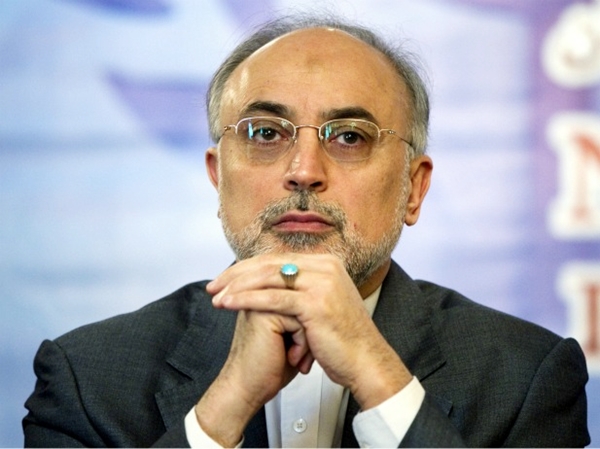Speaking to reporters on the sidelines of a meeting between Iranian President Hassan Rouhani and senior government executives on Saturday, head of Atomic Energy Organisation of Iran Ali Akbar Salehi said, “Technically speaking, we are ready for all scenarios.”
Salehi was echoing earlier remarks by President Rouhani that Iran was ready with expected and unexpected responses in case the US walks out of the 2015 nuclear deal next month.
“The atomic energy organization has taken orders several months ago and is quite ready [to do] things that they might expect and things they can’t imagine,” Rouhani said, according to a transcript of his speech posted on president.ir.
Trump, who calls the 2015 nuclear accord one of the worst deals ever negotiated, has threatened that he will return US sanctions on Iran unless what he calls “flaws” in the accord are fixed.
The deal reached between Iran, the United States and five other world powers put confidence-building curbs on Iran’s nuclear program in exchange for sanctions relief.
The refusal of the US to keep the sanctions frozen will mean the US is no longer bound by the pact.
Iran has warned that it will ramp up its nuclear program if the JCPOA collapses, to achieve a more advanced level than before the deal.
Salehi pointed to his remarks earlier this month that Iran could restore its 20-percent uranium enrichment in just four days, saying it was no exaggeration and other measures are possible.
“We have repeatedly announced we are ready to amaze the other side, although we hope we will not be forced to take such decisions,” Salehi said.
“We hope the other side comes to its senses and will not get itself and others into trouble,” the AEOI chief said, according to a Farsi report by ISNA.
In January Trump sent an ultimatum to Britain, France and Germany, saying they must work to fix the so-called flaws or he would refuse to extend the US sanctions waivers.
As part of their measures seemingly aimed at saving the accord, the three European powers proposed fresh EU sanctions on Iran over its ballistic missiles and its role in Syria conflict, to show Trump that there are other ways to counter Iranian power abroad.
However, they failed to secure the support of all 28 EU member governments this Monday, after a minority of EU states led by Italy voiced concern that the proposed sanctions could further jeopardize the deal.
The three countries are currently in intense talks with the US over the fate of the 2015 deal.
